Ontologies
- We can describe the entity with
- Relationships to entities in other ontologies
- Use reasoning to infer equivalence
- All done with the “Web Ontology Language” (OWL)
- Published by W3C in 2002; version 2 in 2008

:Cat a owl:Class ; rdfs:label "cat"@en ; rdfs:label "Katze"@de .
http://dbpedia.org/resource/Edema
http://de.dbpedia.org/resource/Odem
mesh:D004487 icd10:R60.9 umls:C0013604

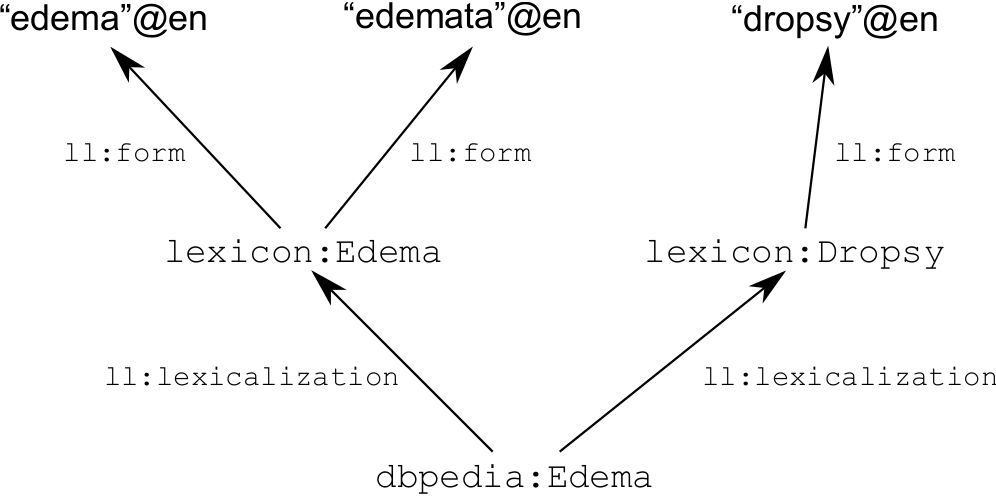

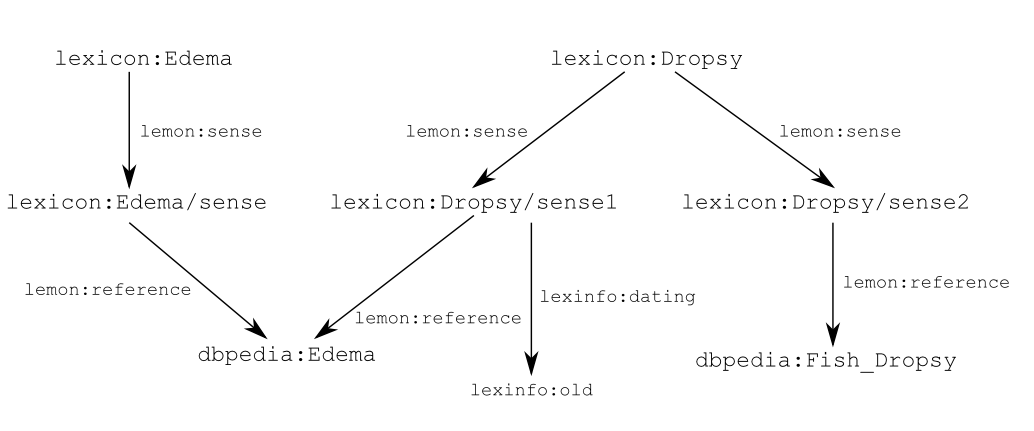
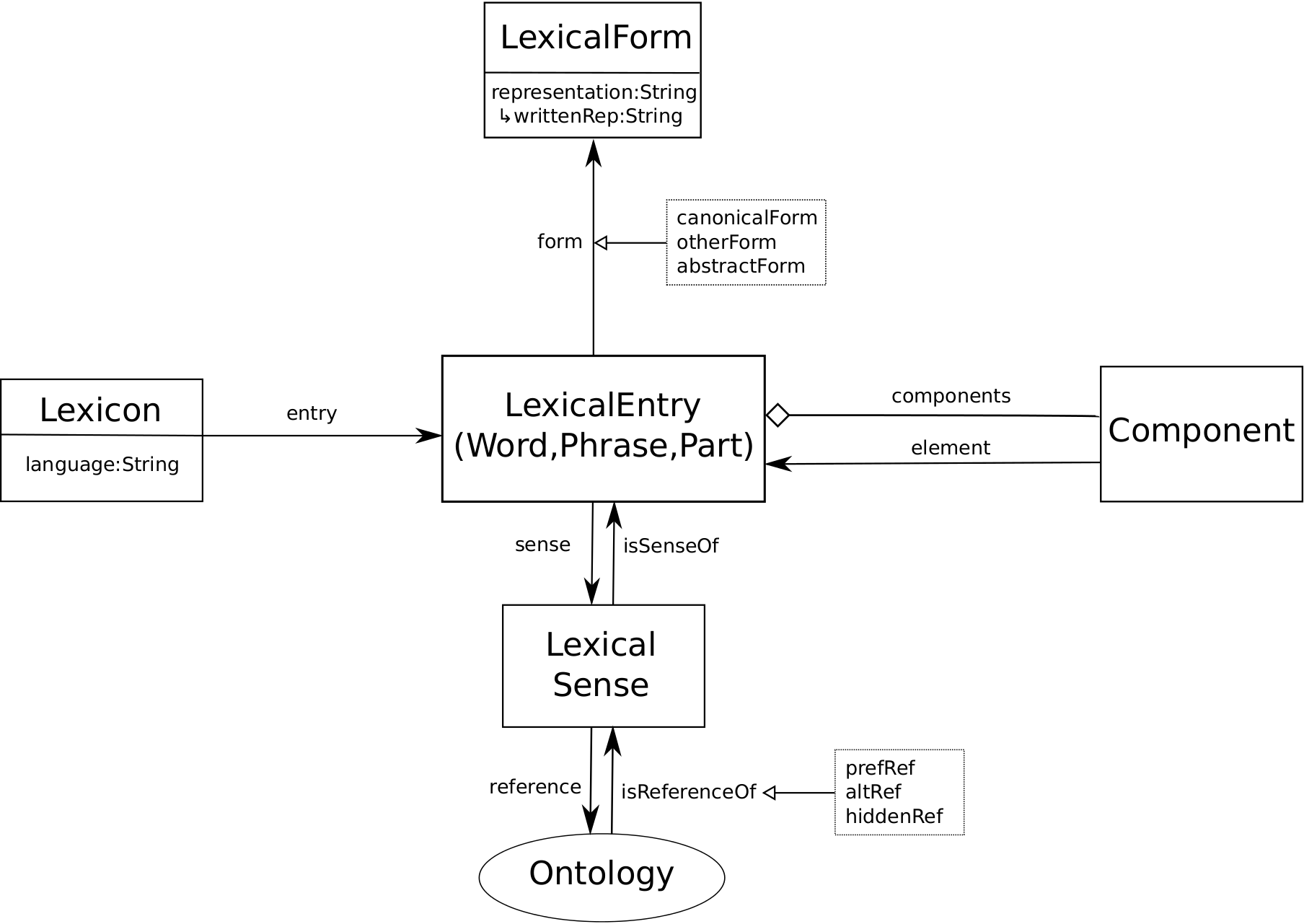

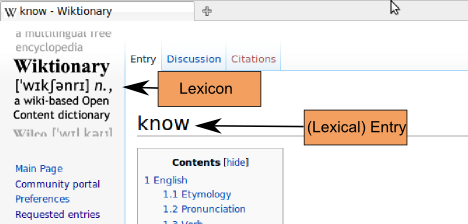

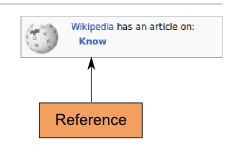
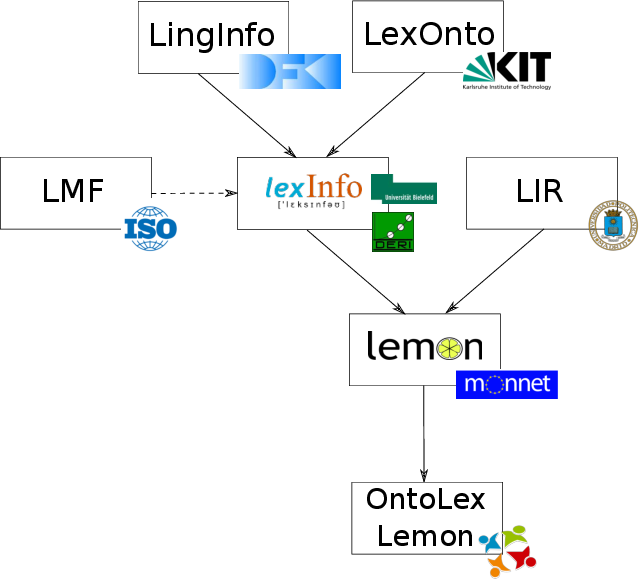



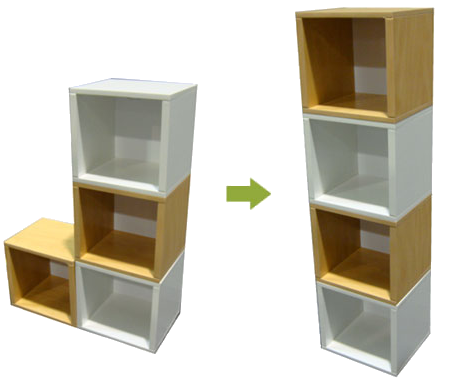
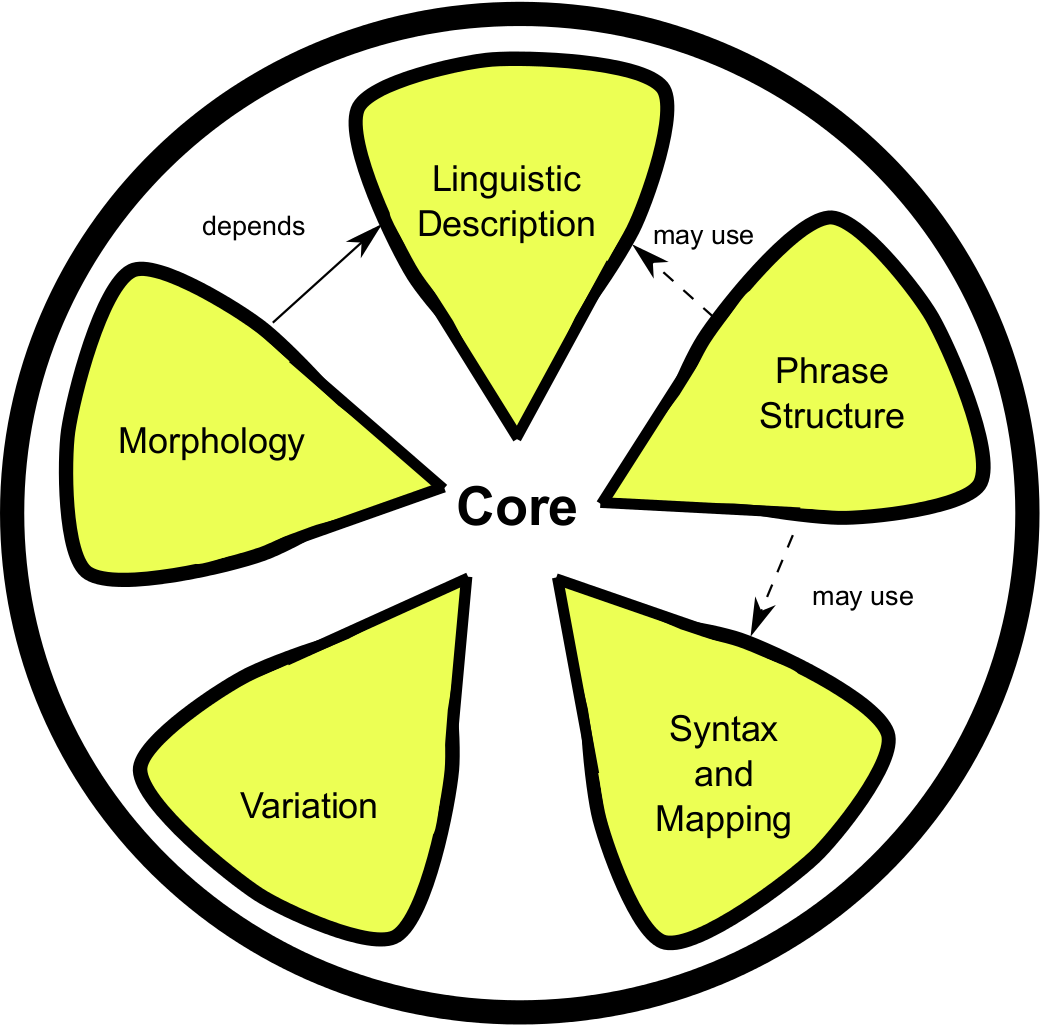
@prefix example: <http://www.example.org/example#> .
Lexicon(<http://www.example.org/lexicon>, "en",
ClassNoun("test", example:Test)
)Name("Microsoft", <http://www.microsoft.com/>)ClassNoun("test", dbpedia:Test)

ObjectPropertyNoun("oenophile", ontology:loves, ontology:wine)RelationalNoun("father", dbpedia:father, propObj = PossessiveAdjunct)PossessiveAdjunct to allow "X is father of Y" and "X is Y's father"StateVerb("know", foaf:knows)ConsequenceVerb("die", dbpedia:deathDate, propObj = PrepositionalObject("on"))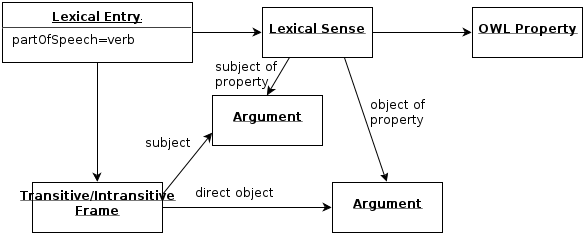
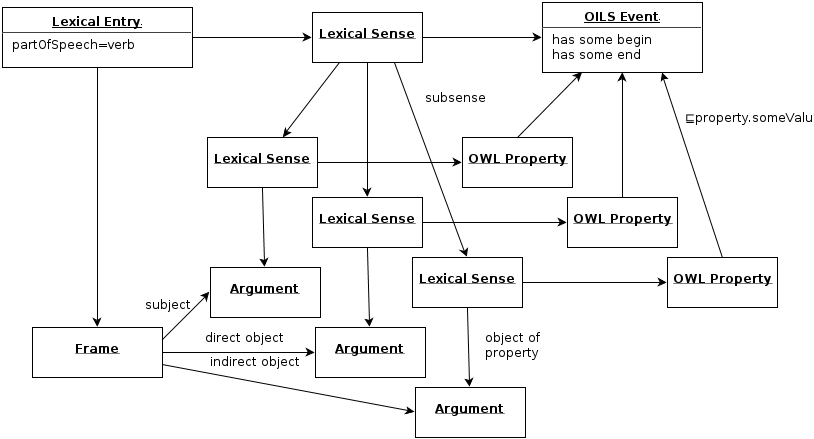
IntersectiveAdjective("Belgian", ontology:Belgian)IntersectiveObjectPropertyAdjective( "Belgian", dbpedia-owl:nationality, dbpedia:Belgium)ScalarAdjective("big", [ontology:size > 5.0 for ontology:Building])ClassNoun("Katze", onto:Cat) with plural "Katzen"ClassNoun("Katze", onto:Cat) feminine (with ...)StateVerb("knows", foaf:knows) neutralRegisterpropSubj and/or propObjSubject (subject of a verb only!)CopulativeArg (subject for nouns and adjectives!)DirectObjectIndirectObjectPrepositionalObject("for") (not normally used for "of"!)PossessiveAdjunctClassNoun(["blood"/noun "vessel"/noun], dbpedia:BloodVessel)In your language model the following DBpedia properties:
@prefix dbo: <http://dbpedia.org/ontology/> .
@prefix dbr: <http://dbpedia.org/resource/> .
@prefix dbp: <http://dbpedia.org/property/> .
Lexicon(<>, "en",
ClassNoun("person", dbo:Person),
ClassNoun("surname", dbo:Surname),
ClassNoun(["given"/noun "name"/noun], dbo:GivenName),
ObjectPropertyNoun("historian", dbp:profession, dbr:Historian),
Name("Germany", dbr:Germany),
IntersectiveObjectPropertyAdjective("German", dbp:nationality, dbr:Germany),
StateVerb("come", dbp:stateOfOrigin, propObj = PrepositionalObject("from"))
with imperfect "came" with past participle "come",
RelationalAdjective("related", dbp:relative, relationalArg = PrepositionalObject("to")),
StateVerb("preceed",dbp:predecessor, propSubj = DirectObject, propObj = Subject),
ConsequenceVerb("marry",dbp:spouse),
RelationalNoun("husband",dbp:spouse,propObj = PossessiveAdjunct)
)